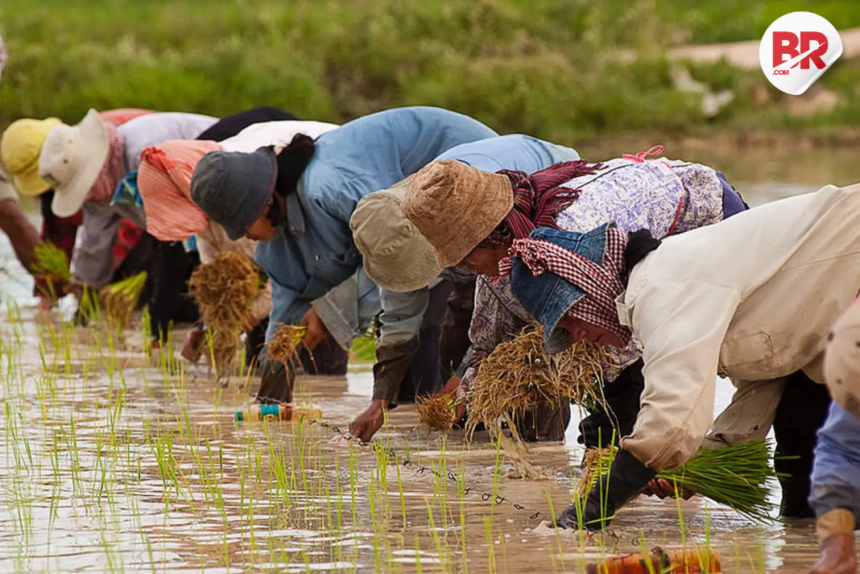
Japan Says No to U.S. Pressure: Farmers Come First
Japan is not giving in. Even with pressure from the United States, Japan has made it clear—it will not sacrifice its farming sector just to strike a trade deal. This firm stance comes as the U.S. continues to complain that Japan is not buying enough American rice.

On Monday, former President Donald Trump posted on social media, saying Japan “won’t take our RICE” despite facing a rice shortage. The post caused a stir in Tokyo, where trade talks have been going on for nearly three months.
Still, Japan is standing strong.
Farming Is National Pride
“Farming is the foundation of our nation,” said Japan’s top trade negotiator and Economy Minister Ryosei Akazawa. Speaking to the press on Tuesday, he made it clear that protecting Japan’s agricultural sector is a top priority.
Akazawa has visited Washington seven times in the last few months. Yet, he said, Japan’s position has not changed: they won’t sign a deal that hurts their farmers.
U.S. Wants More, Japan Says Enough
The U.S. wants Japan to remove a 25% tariff on American cars. In return, it expects more access to Japan’s rice market. But Japan already allows 100,000 tons of tariff-free rice imports every year. Anything above that is taxed at 341 yen ($2.37) per kg.
This rice is not for industrial use. It’s the kind eaten at regular meals. Japan consumes about 7 million tons of rice every year. So, 100,000 tons is a small slice, but a politically sensitive one.
Also Read Trump Gets Special Power in US Steel Deal with Japan’s Nippon Steel
Rice Imports Are Rising Anyway
Despite the noise, Japan has been importing more American rice. Domestic rice prices have jumped, making foreign rice cheaper for consumers.
In June, Japan opened its first rice tender early. It offered 30,000 tons for import. The demand? Over 81,000 tons. Of that, 25,541 tons were from the U.S.
Even tariffed rice imports are rising. In May, Japan imported 10,600 tons of rice, and three-quarters came from America, according to Japan’s Finance Ministry.
Politics Behind the Rice Bowl
This isn’t just about economics. It’s also politics. Japan’s ruling party, led by Prime Minister Shigeru Ishiba, relies on strong support from rural voters. With elections on July 20, they can’t afford to upset farmers.
Farm Minister Shinjiro Koizumi has warned that too much foreign rice is a threat to Japan’s food security. He believes Japan should not become dependent on other countries for its daily bread—or in this case, rice.
Japan is playing hardball. While it wants a deal to end high car tariffs, it won’t trade that for its farmers. The country is importing American rice where it helps its people—but on its own terms. The message to the U.S. is clear: Respect the rice.
Also Read Asia Stocks Gain as S&P 500 Hits Record; Nikkei Drops 1.2% on Tariff Concerns












